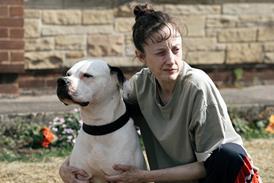Dir Adam Curtis, UK, 2005, 157 mins.
Unlike most political documentaries made in the US, this highlyentertaining and informative BBC production refreshingly offers itself as astraightforward, almost academic essay, with thesis statement, development and demonstration,and concluding restatement of thesis. Its basic argument is that theAmerican neo-conservative political movement (exemplified by the likes of PaulWolfowitz, Donald Rumsfeld, and Richard Perle) is not all that different inspirit and origin from the radical Islamic movement that culminated in theSeptember 11 attacks on the US. Given the audacity of this thesis and thecurrent conservative political climate in the US, one is hard-pressed toimagine the film being shown on television there, where it's needed most,though a modest theatrical run seems like a possibility. Otherwise, thedocumentary should get wide exposure at festivals and on non-commercialtelevision everywhere.
The somewhat facile but fascinating idea behind the series is that thetwo movements, however dissimilar they appear on the surface, are both aboutthe business of an avant-garde elite creating myths for the masses (American aswell as Islamic) to establish order in the increasingly valueless societycreated by modernism. The parallels begin with University of Chicagopolitical philosopher Leo Strauss, the intellectual forefather of the neo-cons,and Sayyid Qutb, the Egyptian school inspector who was so grossed out by thesight of American teenagers dancing cheek-to-cheek on a visit to Colorado in1949 that he sat down and wrote one of the foundational texts of modern Islamicfundamentalism, and go on from there
There's not all that much new in the first two of its three parts, butit's helpful to have it all so succinctly summarized and so cogently laidout. The film moves smartly from around 1950 to the present, carefullytracing the philosophical underpinnings and political fortunes of eachmovement, and contextualizing them historically, in alternating segments.Its talking heads seem authoritative, and filmmaker Adams has managed to scoreaccess to the biggest stars of the neo-con movement, like father and son teamIrving and William Kristol, as well as Richard Pipes, Richard Perle, and PaulWeyrich.
The juiciest bits, however, come in the often astonishing third partwhich avers, for example, that Osama bin Laden, far from being the mastermindbehind worldwide terror, has never been more than a marginalized moneyman amonga host of competing local terrorist groups, and that there really is no suchthing as Al-Qaeda. Sundry experts convincingly back up claims that, forexample, that bin Laden never referred to his group by that name until afterthe media had given it currency following the attacks of September 11. The fewterrorist cases that have been prosecuted in the UK and US are shown to bebased, for the most part, on utter nonsense.
It's by no means a perfect film, of course, and one longs, for example,for questioners to push the neo-cons a little bit harder in theirinterviews. Also, the music is often lurid and sensational, like thenarrator's delivery, lending an artificially souped-up drama to material thatdoesn't need it. In general, though, this is a stirring, thorough yetnever boring documentary that deserves to be seen by the widest possibleaudience.

















No comments yet